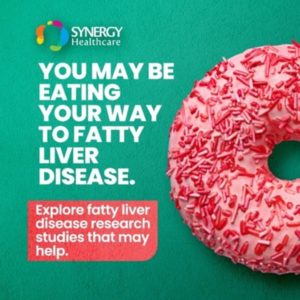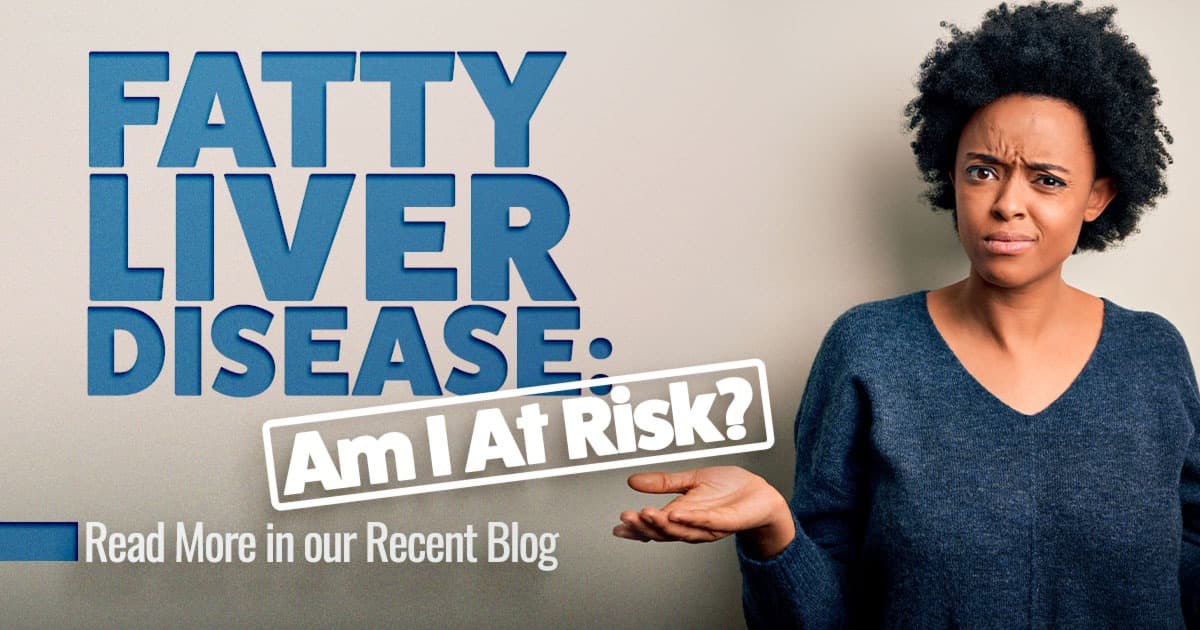Fatty liver disease is a condition caused by the storage of extra fat in the liver. While most people have no symptoms, it can lead to liver damage in some cases. Determining if you’re at risk for fatty liver disease begins with knowing exactly what the risk factors are.
Fat Accumulation in the Liver
Non-alcoholic fatty liver disease (NAFLD) refers to a group of conditions where there is an accumulation of excess fat in the liver of people who drink little or no alcohol. Every healthy liver contains a small amount of fat. However, it becomes an issue when fat reaches 5% to 10% of your liver’s weight.
In most cases, a simple, fatty liver won’t cause any severe problems or prevent your liver from functioning normally. For 7% to 30% of people with fatty liver disease, it worsens over time, progressing to non-alcoholic steatohepatitis (NASH). NASH is a more severe form of fatty liver disease where chronic inflammation of the liver begins to damage and scar it. NASH can progress to cirrhosis which can be life-threatening and lead to liver cancer and liver failure.
Risk Factors
Drinking too much alcohol can cause a buildup of fat in your liver. Fatty tissue can also build up in your liver if you drink little or no alcohol. Other contributing factors include:
- Diabetes
- Having high cholesterol levels
- Having high triglyceride levels
- High blood pressure
- Being overweight or obese
- Have obstructive sleep apnea
Poor eating habits may also raise your risk of NAFLD, such as diets high in saturated fats and sugar.

Treating Fatty Liver Disease
There is no specific medication or procedure available for treating NAFLD. Instead, your doctor will likely recommend several essential lifestyle changes such as:
- Maintaining a healthy weight
- Eating a healthy, sensible diet of primarily fruits, vegetables, and whole grains
- Exercising regularly at least 30 minutes daily
- Controlling chronic conditions like cholesterol and blood glucose levels
- Reducing alcohol consumption or avoiding it
While there are currently no FDA-approved medications for NASH treatment specifically, several are being studied in clinical research studies. If you have NASH, enrolling in research studies here at Synergy Healthcare may be an option. For more details, call us at (941) 896-4948, or visit our website today!
Sources:












